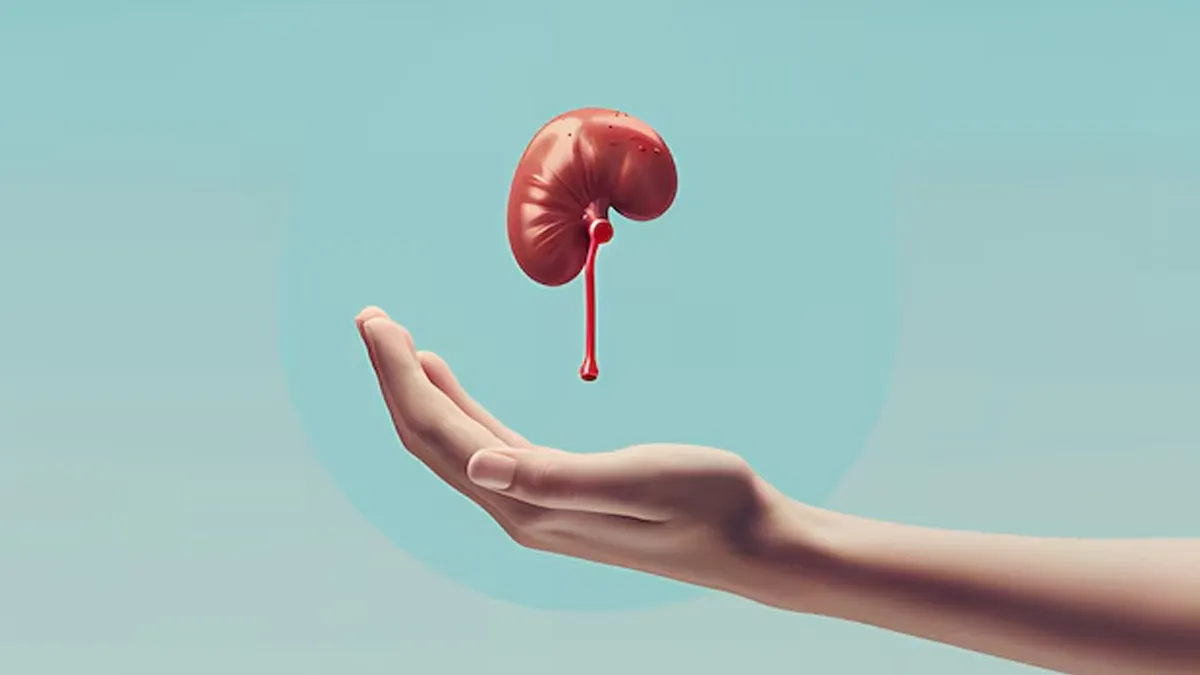
In India, around 20-40% of people with diabetes, specifically Type-2 diabetes, suffer from chronic kidney disease (CKD). Diabetes, a blood glucose-related condition, can damage the body’s tiny blood vessels, affecting the kidneys’ ability to filter blood properly. Dr. Abhyuday Singh Rana, Associate Consultant, DNB (Nephrology), DNB (Medicine), MBBS (MD Physician), tells us more about the kidney health-diabetes connection and suggests what preventive measures you can take to stay healthy.
As per Dr. Abhyuday Singh Rana, when blood sugar remains high for a long time, it can damage the kidneys. This is known as diabetic kidney disease (DKD) or diabetic nephropathy.
DKD can be managed or even prevented with early intervention, while key treatment goals are to control blood sugar and blood pressure. Here are three ways to go about it:
If you have diabetic kidney disease in its early stages, your doctor might recommend medications to control blood sugar, like insulin and blood pressure, like ACE inhibitors and ARBs. They may also ask you to take statins to lower cholesterol. These medications can also help reduce protein in the urine, a sign of kidney damage.
Dietary changes play a crucial role in managing diabetic kidney disease, especially in the early stages. Be mindful of the following:
While drinking water is essential, consuming too much can increase blood pressure and cause swelling (edema).
Don't Miss: Exercises For Diabetes Patients For A Healthy And Stress-Free Life
Excess protein intake can lead to waste buildup in the blood, which puts the added strain on the kidneys.
Phosphorus is found in dairy and protein-rich foods. Too much phosphorus can strain the kidneys and also harm bones.
In people with kidney disease, high potassium levels can affect nerve function, so it’s important to manage potassium intake.
Too much sodium can raise blood pressure, which can worsen kidney damage.
If diabetic kidney disease progresses to end-stage renal disease (ESRD), dialysis or a kidney transplant may be necessary. For patients with ESRD, dialysis is often required for life or until a suitable kidney becomes available for transplant.
"In conclusion, early intervention, proper medication, and dietary changes are crucial for managing diabetic kidney disease and preventing further kidney damage. Regular monitoring of blood sugar and blood pressure is essential to keep your kidneys healthy and functioning well," Dr. Abhyuday Singh Rana wraps up.
Don't Miss: What Is A Diabetic Diet? Nutritionist Shares A Plans To Control Blood Sugar Levels
If you liked this story, please share it. For more such articles, stay tuned to HerZindagi.
Our aim is to provide accurate, safe and expert verified information through our articles and social media handles. The remedies, advice and tips mentioned here are for general information only. Please consult your expert before trying any kind of health, beauty, life hacks or astrology related tips. For any feedback or complaint, contact us at compliant_gro@jagrannewmedia.com.